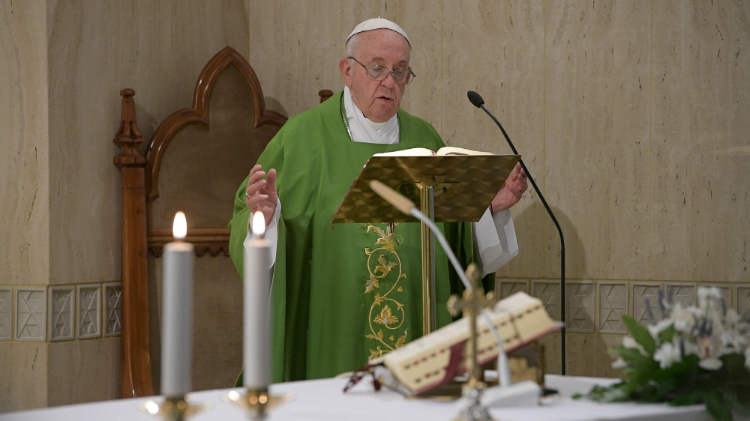
CNS photo/Vatican Media
The encounter with the Word of God fills us with joy, and this is our strength. At the Mass at Casa Santa Marta, Pope Francis emphasized that we cannot understand the feast of Sunday without the Word of God.
October 3, 2019
In his homily at daily Mass, Pope Francis said that opening our hearts to the encounter with the Word of God fills us with joy. The Holy Father invited the faithful to listen attentively to the readings, without letting them “go in one ear and out the other.”
The Pope began by reflecting on the day’s first Reading, taken from the book of the prophet Nehemiah. It is “the story of the encounter of the people of God with the Word of God. It’s all a story of rebuilding,” he said.
The reading is centered on the reconstruction of the Temple and the return of the Jewish people from exile. The leaders of the people – the governor, Nehemiah; and Ezra, the scribe – “enthroned” the Word of God. They had gathered the people in the square in front of the Water Gate, and Ezra read from the scroll of the Law; afterwards, the priests explained the reading to the people. Pope Francis asked his listeners to consider how “for decades this had not happened. It is the encounter of the people with their God, the encounter of the people with the Word of God.”
The people hungered for the Word of God
The Holy Father contrasted their response to the Word of God with our own: “We are used to having this book which is the Word of God,” he said, but we have gotten ‘used to it’ “in a bad way.” The people in Ezra’s time, on the other hand, had been deprived of the Word, “they hungered for the Word of God, and so when they saw the book of the Word they stood up.” Pope Francis continued:
Nehemiah, who was the governor; Ezra, the priest and scribe; and the priests who taught the people, said to all the people, “This day is consecrated to the Lord.” For us, it is Sunday. Sunday is the day of the encounter of the people with the Lord, the day of the encounter of my family with the Lord. The day of my encounter with the Lord is a day of encounter. “This day is consecrated to the Lord.”
The feast of Sunday cannot be understood without the Word of God
For this reason, Nehemiah, Ezra, and the priests encouraged the people not to mourn and not to weep. The day’s first Reading says that the people wept when they heard the Word; but, the Pope said, they wept “from emotion, they wept from joy”:
When we hear the Word of God, what happens in my heart? Do I pay attention to the Word of God? Do I let it touch my heart, or do I stand there staring at the ceiling thinking of other things, and the Word goes in one ear and out the other, [and] does not reach the heart? What do I do to prepare myself so that the Word will reach the heart? And when the Word reaches the heart, there are tears of joy and there is the feast. The feast of Sunday cannot be understood without the Word of God, it is not understood. “Then Nehemiah said to them, ‘Go, make a feast’ – and he gave a good recipe for a feast: Eat rich foods and drink sweet wines and send portions to those who have nothing’ – [that is,] to the poor. The poor are always the altar servers of the Christian feast, the poor! – because this day is consecrated to our Lord; do not be sad, because the joy of the Lord is your strength.
Opening our hearts to joy: sadness is not our strength
On the contrary, the Pope continued, sadness is not our strength. “The Word of the Lord makes us joyful,” he said:
The encounter with the Word of God fills us with joy, and this joy is my strength, it is our strength. Christians are joyful because they have accepted, they have received the Word of God in their hearts, and they continually encounter the Word, they seek it out. This is the message for today, for all of us. A brief examination of conscience: ‘How do I listen to the Word of God? Or do I simply not listen? How do I encounter the Lord in His Word, which is the Bible?’ And then, ‘Am I convinced that the joy of the Lord is my strength?’ Sadness is not our strength.
The devil immediately casts down “saddened hearts,” the Pope said; while the joy of the Lord “makes us rise up, look and sing, and weep with joy.” One of the Psalms, he noted, says that at the moment of liberation from the Babylonian captivity, the Jewish people thought they were dreaming – they could not believe it. Our experience is similar, Pope Francis continued, “when we meet the Lord in His Word,” when we think, “But this is a dream… and cannot believe such beauty.”
Concluding his homily, the Holy Father prayed, “May the Lord give us the grace to open our hearts for this encounter with His Word, and to not be afraid of joy, to not be afraid to make the feast of joy” – that joy, he said, “that flows precisely from this encounter with the Word of God.”
Vatican News


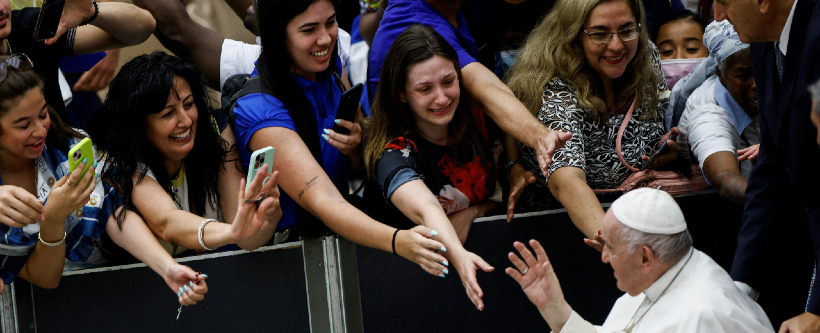
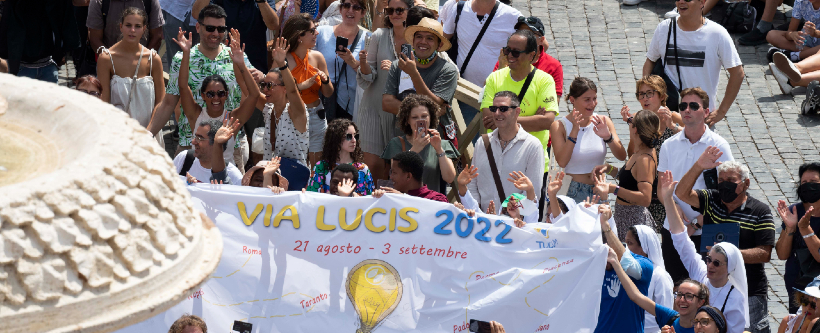
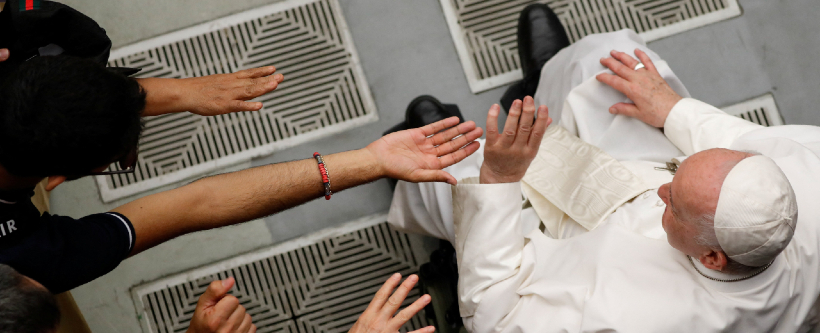
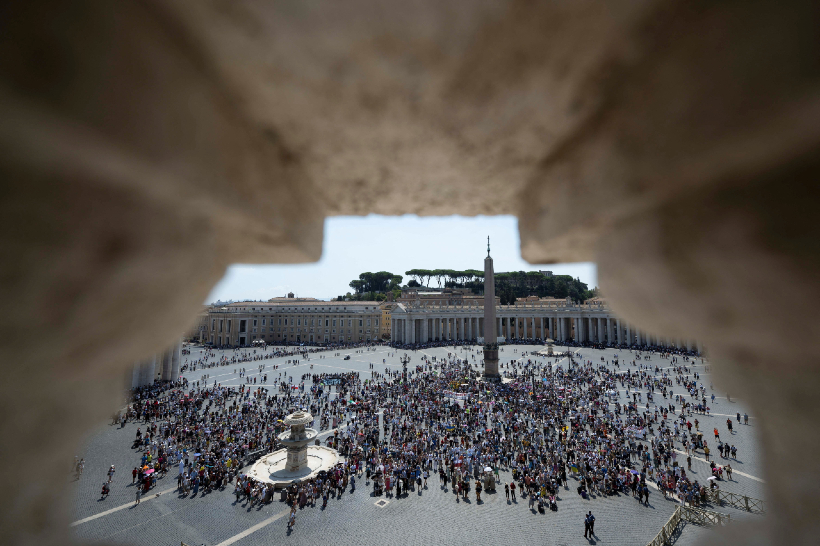
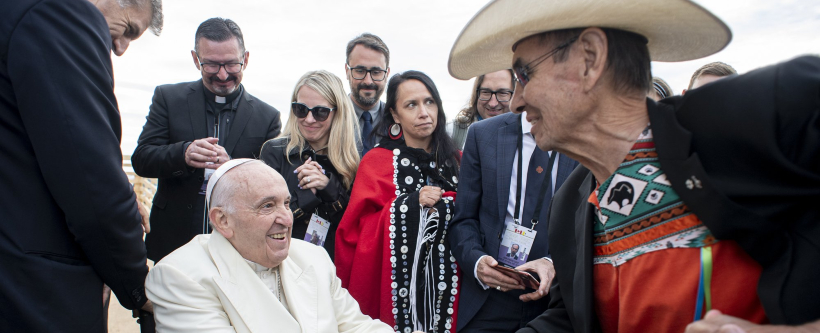
Facebook Comments